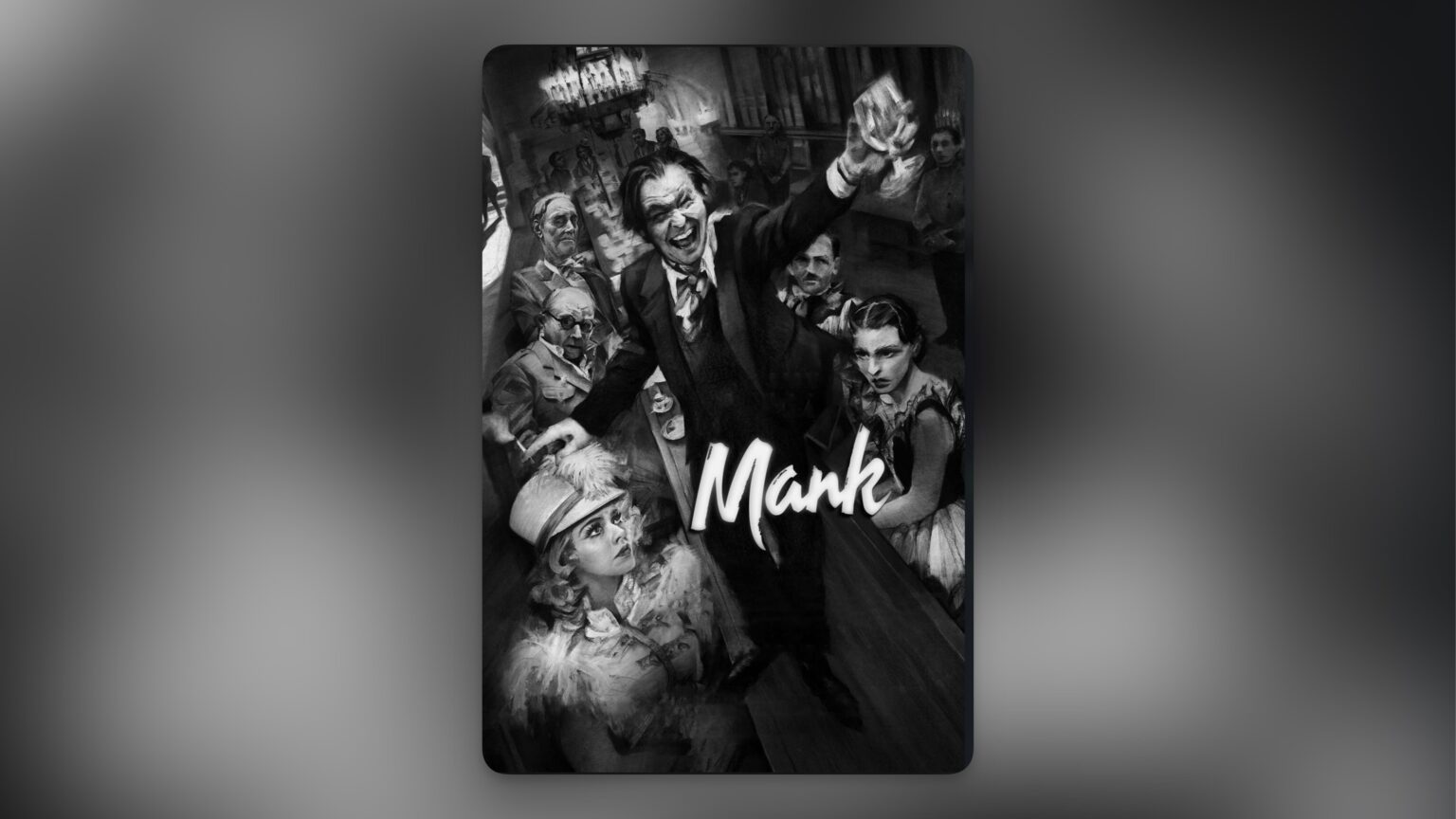Mank is a dazzlingly meticulous deep dive into the origins of Citizen Kane. It is something of a monument to the creative process. In fact, there’s a moment in which our protagonist, Herman Mankiewicz, is told that he is simply “a writer.” The line is meant as a toss-off, a reminder of his inconsequential place in Hollywood’s grand hierarchy. And yet, what Mank suggests—what it insists upon—is that the writer is everything.
David Fincher’s film is a story about authorship: who tells the stories, who controls the narrative, and, most importantly, who gets the credit. Told in a dazzling black-and-white palette that evokes the era of old Hollywood, Mank follows the bedridden, alcoholic, and razor-sharp Mankiewicz (played with staggering depth by Gary Oldman) as he races to complete the first draft of Citizen Kane for Orson Welles. Flashbacks transport us to 1930s Hollywood, where Mank’s drunken wit makes him both indispensable and disposable in the studio system. His friendships—with media mogul William Randolph Hearst (Charles Dance), Hearst’s mistress Marion Davies (Amanda Seyfried), and the various power players of the industry—became the raw material from which he shapes what would become one of the highest-regarded films of all time. (I haven’t actually written my review of Citizen Kane as it’s been quite a while since I last watched it. But I think I might be one of those rare breed who prefers Mank. Controversial, I’m aware.)
Fincher, working from a script written by his late father, Jack Fincher, presents Mank as not just a story of artistic creation but of political and personal reckoning. The film weaves Mankiewicz’s disillusionment with Hearst and the Hollywood machine into the broader political landscape of the time, particularly the 1934 California gubernatorial race, in which socialist author Upton Sinclair ran against Republican incumbent Frank Merriam. The film suggests that Mank’s disgust at the film industry’s role in manufacturing propaganda to destroy Sinclair’s campaign was the true catalyst for his damning portrayal of Hearst in Citizen Kane.
This is where Mank takes creative liberties. Historians have pointed out that there is little evidence to suggest that Mankiewicz was deeply invested in Sinclair’s campaign or that he had any hand in the infamous fake newsreels designed to sabotage Sinclair’s candidacy. The character of Shelly Metcalf, the guilt-ridden director who kills himself over his role in making the propaganda films, is fictional. But Fincher is not interested in strict historical accuracy; he is interested in myth-making, in the ways people justify their own creative choices, and in how the wounds of history shape the stories we tell today.
From a purely aesthetic standpoint, Mank is a marvel. Cinematographer Erik Messerschmidt crafts a world that feels pulled straight from a nitrate print, complete with reel-change markers, deep-focus compositions, and sound design that mimics the acoustics of 1940s Hollywood films. The film is shot in luscious black-and-white, using RED digital cameras with a custom monochrome sensor to achieve a period-appropriate look. The score by Trent Reznor and Atticus Ross, eschewing their usual electronic soundscapes, is a hauntingly beautiful homage to orchestral compositions of the time.
The performances are uniformly excellent. Oldman, as Mank, is a whirlwind—charming, self-destructive, brilliant, and infuriating in equal measure. Amanda Seyfried’s Marion Davies is delightful, imbuing the character with warmth, intelligence, and a tragic awareness of her place in Hearst’s world. Charles Dance’s Hearst is a quiet, looming presence… and a dick.
Mank also reignites one of Hollywood’s longest-running debates: Who really wrote Citizen Kane? The film takes a stance that aligns with Pauline Kael’s 1971 essay Raising Kane, which argued that Mankiewicz was the true author of the screenplay and that Orson Welles merely put his name on it. This argument has been widely discredited, with scholars confirming that Welles played a significant role in shaping the final script. Yet Mank portrays Welles (Tom Burke) as a distant auteur and an opportunist who swoops in at the last moment to claim credit.
It is tempting to read Mank as Fincher’s own statement on the nature of authorship. After all, this was a project written by his father, a passion project that Fincher had been waiting decades to make. The film’s final act, in which Mankiewicz battles to have his name on the script, feels like a plea for recognition—not just for Mank, but for all the unsung writers who have shaped Hollywood’s greatest works without the glory.
Mank is dense, layered, and insider-y. It assumes a level of familiarity with old Hollywood, with Citizen Kane, with the history of the studio system. But it is, at the same time, a rich, intoxicating, and deeply rewarding watch. Fincher has made a film about the power of storytelling—who owns a story, who gets to tell it, and who history remembers. In doing so, he has crafted a film worthy of its subject: a sharp, complex, and exquisitely crafted meditation on genius, power, and the cost of speaking truth to both.

